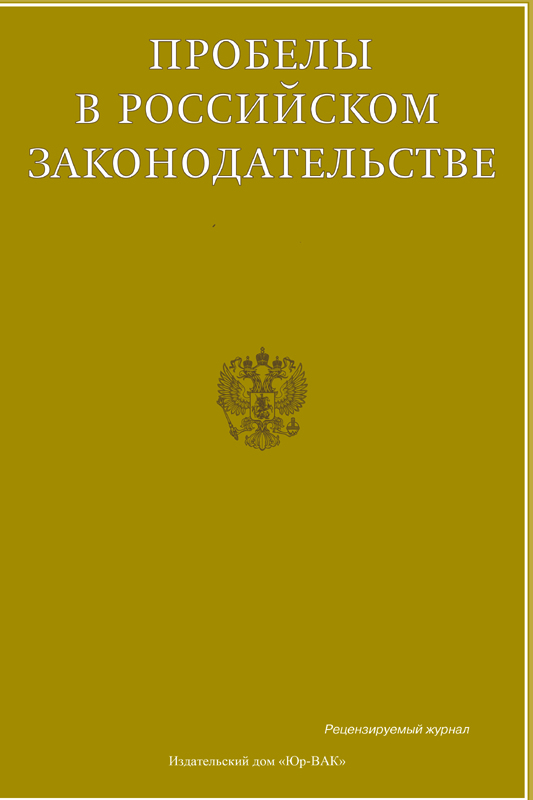Differences in Approaches to the Nature of Constitutional Identity: Analysis of Non-Positivism Interpretational Models
- Авторлар: Belosludtsev O.S.1
-
Мекемелер:
- National Research Ogarev Mordovia State University
- Шығарылым: Том 15, № 6 (2022)
- Беттер: 64-68
- Бөлім: Articles
- URL: https://journals.eco-vector.com/2072-3164/article/view/531544
- ID: 531544
Дәйексөз келтіру
Аннотация
The article deals with the issue of ambiguity in the understanding of constitutional identity, which is directly related to understanding the nature of constitutional identity. The author states significant differences in the interpretation of constitutional identity, both in judicial practice and in doctrine. The author also believes that the conceptualization of constitutional identity depends on the inclusion in it of various aspects closely related to national identity. The article analyzes other points of view based on a clear distinction between national and constitutional identity. The author believes that each of the approaches has its strengths and weaknesses. However, the heuristic merits of the non-positivist point of view on the nature of constitutional identity are much less likely to fall into the field of vision of domestic researchers. Understanding constitutional identity as a form of representation of national culture allows us to raise questions that were previously beyond the attention of researchers, expanding the possibilities of theoretical understanding of the uniqueness of a particular national legal order.
Негізгі сөздер
Толық мәтін
Авторлар туралы
Oleg Belosludtsev
National Research Ogarev Mordovia State University
Email: bos.perm@yandex.ru
Cand.Sci.(Law), Sеnior lecturer of International and European Law Department, FAculty of Law Saransk, Russian Federation
Әдебиет тізімі
- Trybunał Konstytucyjny 24.11.2010 [Polish Constitutional Tribunal decision of 24 November 2010] K 32/09.
- Decision of the Slovak Constitutional Court of 30 January 2019, PL. ÚS 21/2014-96.
- Cloots E. (2016) National Identity, Constitutional Identity, and Sovereignty in the EU. Netherlands Journal of Legal Philosophy, vol. 45, no. 2, pp. 82-98.
- Drinóczi T. (2020) Constitutional Identity in Europe: The Identity of the Constitution. A Regional Approach. German Law Journal, vol. 21, no. 2, pp. 105-130.
- Hirschl R. (2010) Constitutional Theocracy, Cambridge, MA: Harvard University Press.
- Jacobsohn G. J. (2010) Constitutional Identity, Cambridge, MA: Harvard University Press.
- Jacobsohn G. J. (2006) Constitutional Identity. The Review of Politics, vol.68, no.3, pp.361-397.
- Лукьянова Е.А. Идентичность и трансформация современного права // Сравнительное конституционное обозрение. 2020. №3 (136). С.130-147.
- Nußberger A. (2019) Evropeyskaya Konventsiya o zashchite prav cheloveka i osnovnykh svobod - Konstitutsiya dlya Evropy? [The European Convention for Protection of Human Rights and Fundamental Freedoms - a Constitution for Europe?]. Mezhdunarodnoe pravosudie, vol.9, no.2, pp. 3-19. (In Russian).
- Rosenfeld M. (1994) Modern Constitutionalism as Interplay Between Identity and Diversity. In: Rosenfeld M. (ed.) Constitutionalism, Identity, Difference, and Legitimacy: Theoretical Perspectives, Durham, NC: Duke University Press, pp. 3--36.
- Stone Sweet A. (2009) On the Constitutionalisation of the Convention: The European Court of Human Rights as a Constitutional Court. Revue Trimestrielle des Droits de l’Homme, vol. 80, pp. 923-944.
- Tushnet М. (2010) Why the Constitution Matters, Yale University Press.
Қосымша файлдар








